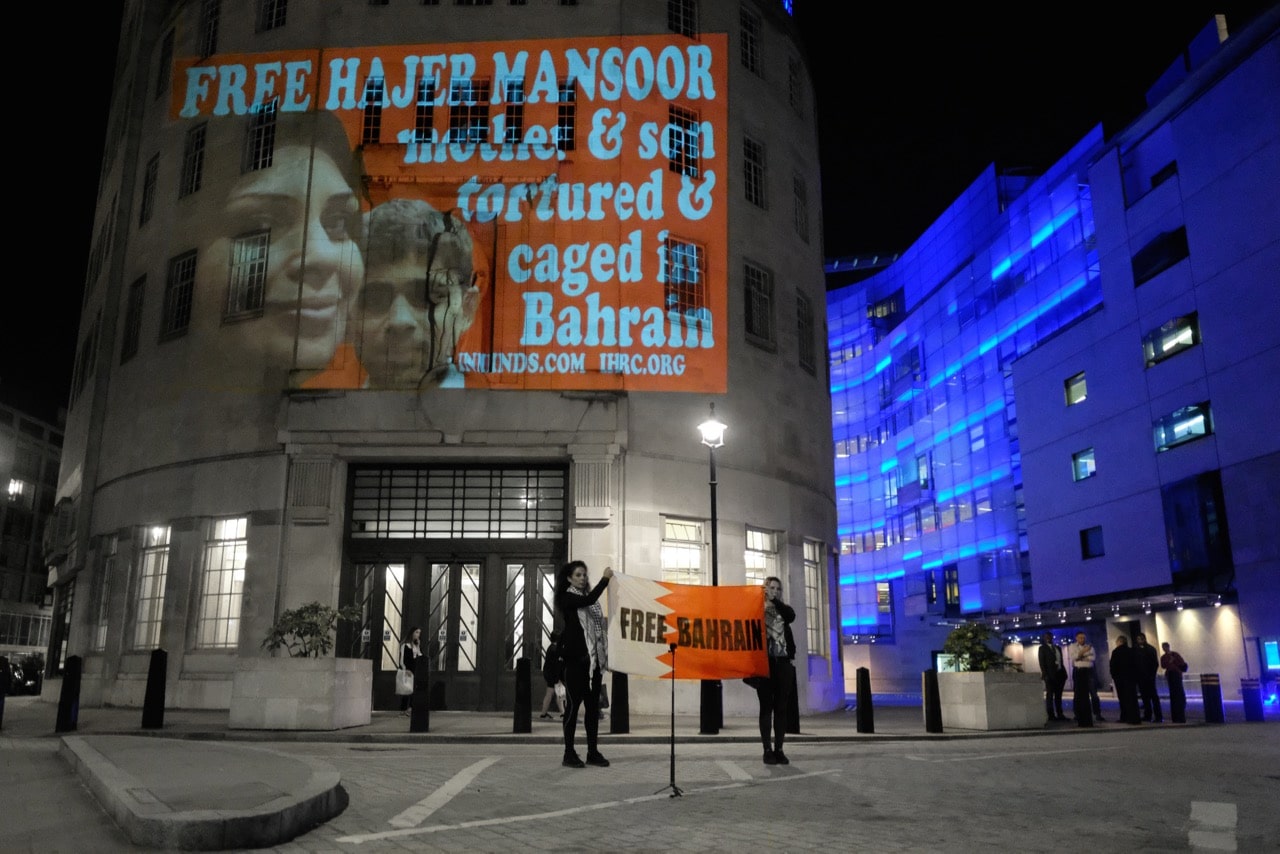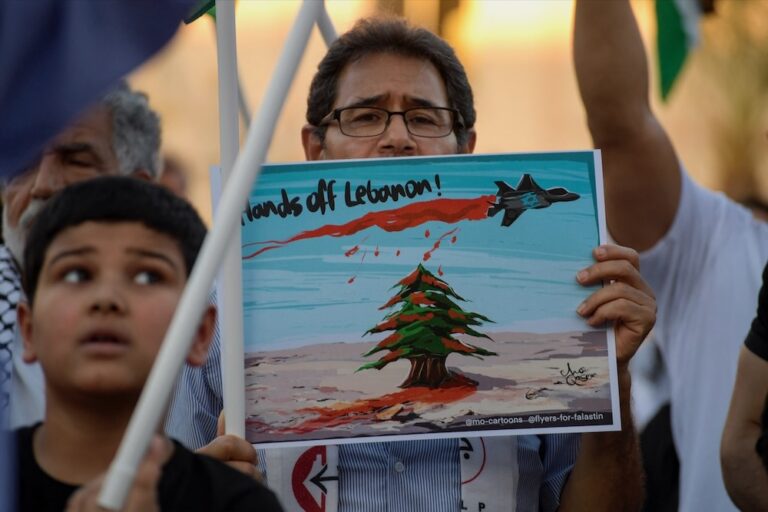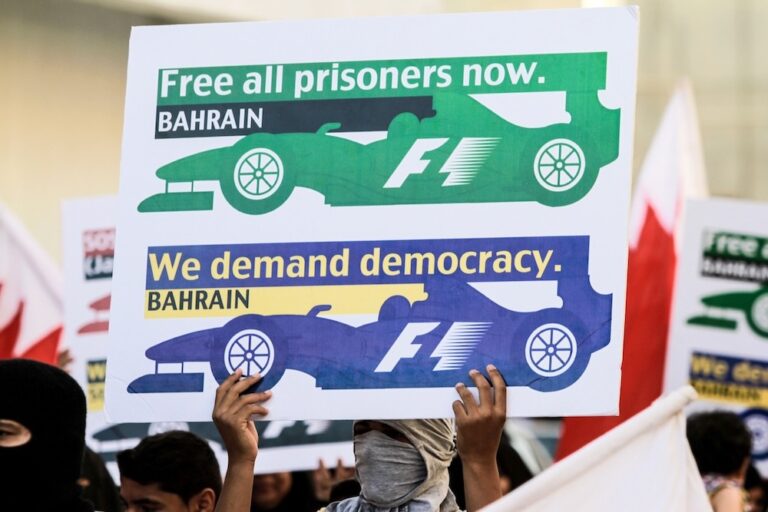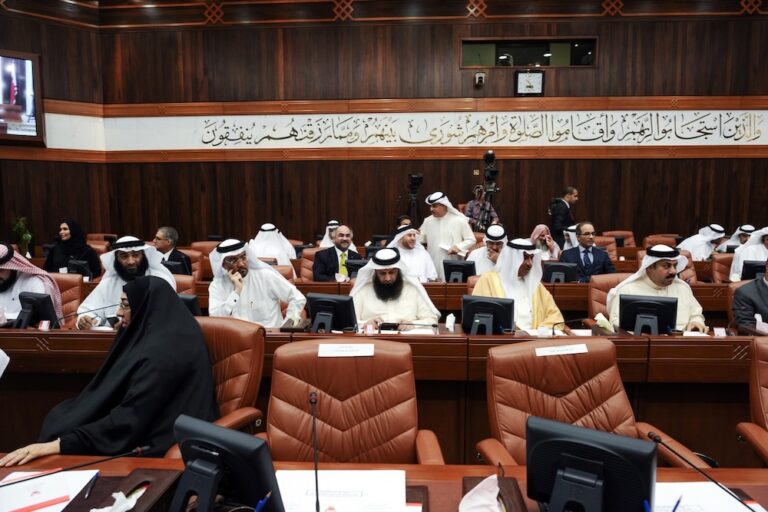NGOs are drawing attention to the appalling conditions faced by female human rights defenders in Bahrain's Isa Town Prison for Women.
This statement was originally published on adhrb.org on 18 October 2018.
Today, Americans for Human Rights & Democracy in Bahrain (ADHRB) in cooperation with the Bahrain Center for Human Rights (BCHR), Bahrain Institute for Rights and Democracy (BIRD), CIVICUS, European Centre for Democracy and Human Rights (ECDHR), Front Line Defenders, Gulf Centre for Human Rights (GCHR), Index on Censorship, and the International Service for Human Rights (ISHR) sent a letter to Michele Bachelet, the United Nations (UN) High Commissioner for Human Rights, and UN experts calling on them to condemn the appalling conditions faced by female human rights defenders in Bahrain’s Isa Town Prison for Women. Please find the PDF link to the full letter here.
Dear High Commissioner and UN Experts,
The undersigned organisations are writing to urge you to publicly condemn the appalling reprisals facing women human rights defenders Hajer Mansoor, Najah Yusuf and Medina Ali in Bahrain’s Isa Town Prison for women, which we believe are in retaliation to the attention their cases received from the United Nations and British Parliament. Concurrently, our organisations raise grave concern for the total inefficacy of Bahrain’s human rights mechanisms and urge you to publicly call for the end of these punitive measures as well as the immediate and unconditional release of the three women.
On 16 September 2018, Mansoor, Yusuf and Ali were assaulted soon after the publication of a report by the UN Secretary-General and a Westminster Debate raising their cases. The three women had been unjustifiably denied access to religious participation in previous weeks and, before the assault, they were attempting to join their fellow Bahraini inmates in the commemoration of Ashura.
In response, prison guards, led by the head of Isa Town Prison, Major Mariam Albardoli, harshly beat Mansoor, Yusuf and Ali, and then kept them in solitary confinement for two hours. En route to the isolation cell, following the incident, Mansoor was unable to stand and was hospitalised, having suffered a dangerous drop in her blood sugar levels and bruises on her hands and back. In addition Ali says Major Albardoli also punched her on her back in an area without any CCTV monitoring.
Following the assault, authorities have exacerbated their retaliation by applying restrictions on all inmates. Prison conditions have been made unbearable, prompting an inmate to attempt suicide. Family visits must now be conducted behind a glass barrier, which impedes any meaningful contact with family members. Furthermore, inmates are now locked in their cells for 23 hours a day, and their phone calls have been reduced to twice a week, when formerly it was three times a week. These changes significantly reduce the frequency with which families hear updates on the condition of inmates, especially since calls with legal representation are also deducted from allocated calls to family members. We are also concerned that 13 Russian inmates have deemed it necessary to launch a hunger strike to protest prison conditions. We fear that the protest may soon extend to a collective hunger strike of all Bahraini inmates if the situation does not improve.
This collective punishment has triggered international criticism, with members of the UK Parliament raising concerns and international media outlets reporting on the events. However, we are deeply alarmed by Bahrain’s response. Oversight bodies have thus far failed to support Mansoor, Yusuf and Ali by ensuring they conduct independent investigations into their allegations. Furthermore, the claims of Bahrain’s Ministry of Interior that Mansoor “tried to hurt herself by hitting her body and lying on the floor” is implausible. We also condemn the National Institution for Human Rights (NIHR)’s statement of 2 October which only whitewashed the assault by Major Albardoli and the prison guards, as “within reasonable use of force”, even though it led to the hospitalisation of an inmate. Their investigation continues by claiming that there was “no case of intentional denial” of basic rights such as family visitations and phone calls, which is in stark contradiction with the testimony provided by the three women.
Last month, the UN Secretary-General detailed the “ongoing trend of harassment and intimidation” against representatives of Bahrain’s civil society who cooperate with the UN, and noted the persecution of family members of Sayed Ahmed Al-Wadaei, the son-in-law of Mansoor, who is Director of Advocacy of the Bahrain Institute for Rights and Democracy (BIRD). The timing of these recent reprisals against Mansoor, Yusuf and Ali suggests, once again, a coordinated effort by the Bahraini authorities to avert international criticism by intimidating and punishing prisoners of conscience and human rights defenders.
Bahrain is now a member of the UN Human Rights Council, and while its oversight bodies have completely failed to address the situation, it is vital that you make your position clear by publicly condemning these abusive restrictions, which violate the UN Standard Minimum Rules for the Treatment of Prisoners.
On 3 October, Mansoor, Yusuf and Ali called for the urgent intervention of “UN Special Rapporteurs to stop the violations we are subjected to, and to expose the falsity of the human rights organisations and institutions that follow the regime in Bahrain.” In support of these demands, they began a hunger strike on 14 October, and are now being held at the prison clinic in critical conditions. It is imperative, now more than ever, to use the weight of your office to publicly defend them, by:
. Issuing a public statement calling for an end to the reprisals against Hajer Mansoor, Najah Yusuf and Medina Ali, as well as the ongoing restrictions on phone calls, family visits and time outside the cell imposed on all inmates;
. Calling on Bahrain to immediately and unconditionally release those women who are imprisoned on politicised charges related to their human rights activities, and those of their relatives;
. Publicly calling for an independent investigation into the allegation of torture and mistreatment against female prisoners, to ensure perpetrators, including Major Albardoli, are hold to account.
. Urging the Government of Bahrain, in light of its recent appointment as Member of the Human Rights Council, to strictly abide by its international obligations, including by allowing the Special Rapporteur on Torture and Other Cruel, Inhuman or Degrading Treatment or Punishment to visit the country.
Yours Sincerely,
Americans for Democracy & Human Rights in Bahrain (ADHRB)
Bahrain Center for Human Rights (BCHR)
Bahrain Institute for Rights and Democracy (BIRD)
CIVICUS
European Centre For Democracy and Human Rights (ECDHR)
Front Line Defenders
Gulf Centre for Human Rights (GCHR)
Index on Censorship
The International Service for Human Rights (ISHR)
Brian Dooley, Senior Advisor, Human Rights First (HRF)



